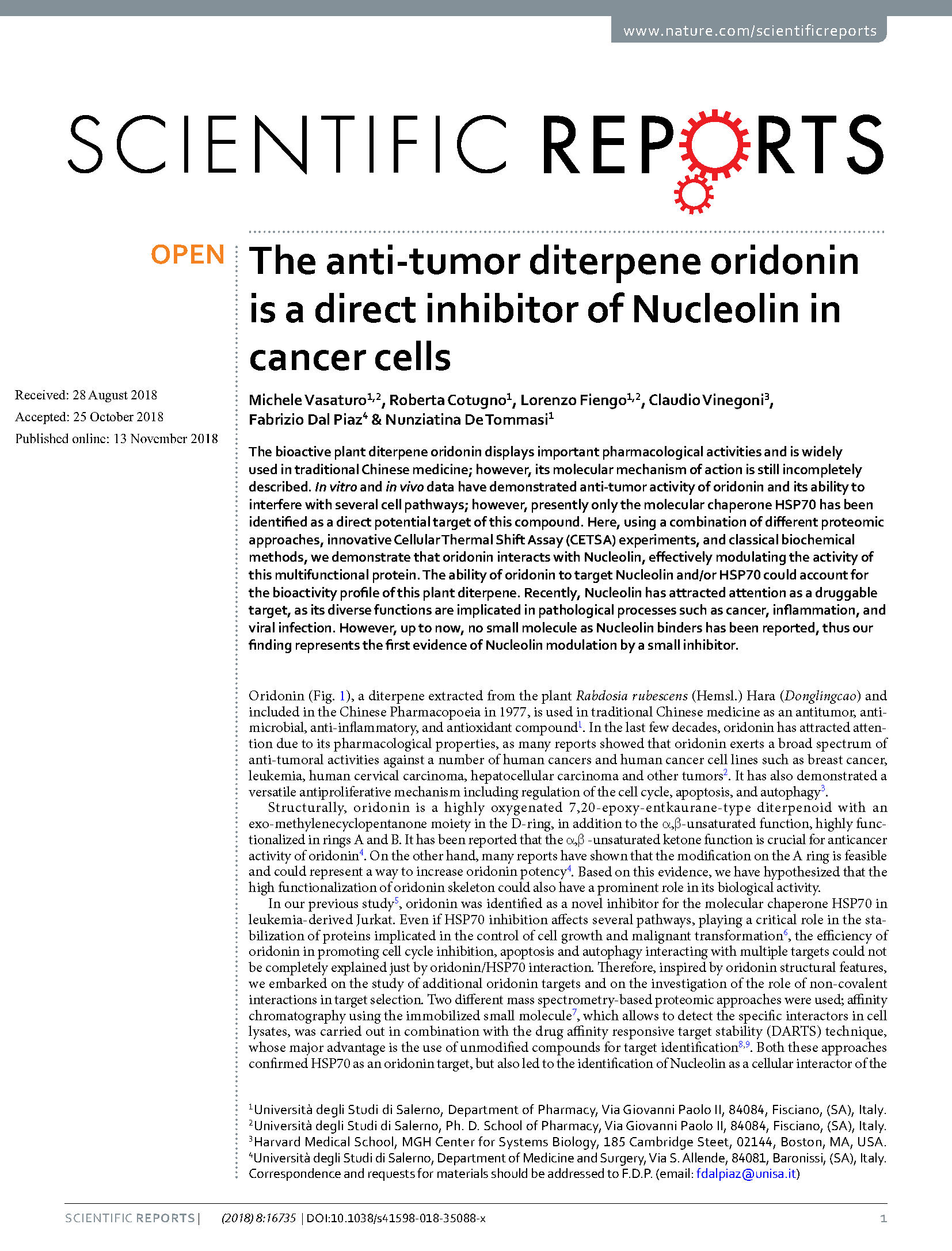The anti-tumor diterpene oridonin is a direct inhibitor of Nucleolin in cancer cells
Scientific Reports
Abstract
"The bioactive plant diterpene oridonin displays important pharmacological activities and is widely used in traditional Chinese medicine; however, its molecular mechanism of action is still incompletely described. In vitro and in vivo data have demonstrated anti-tumor activity of oridonin and its ability to interfere with several cell pathways; however, presently only the molecular chaperone HSP70 has been identified as a direct potential target of this compound. Here, using a combination of different proteomic approaches, innovative Cellular Thermal Shift Assay (CETSA) experiments, and classical biochemical methods, we demonstrate that oridonin interacts with Nucleolin, effectively modulating the activity of this multifunctional protein. The ability of oridonin to target Nucleolin and/or HSP70 could account for the bioactivity profile of this plant diterpene. Recently, Nucleolin has attracted attention as a druggable target, as its diverse functions are implicated in pathological processes such as cancer, inflammation, and viral infection. However, up to now, no small molecule as Nucleolin binders has been reported, thus our finding represents the first evidence of Nucleolin modulation by a small inhibitor."
Full citation
For attribution in academic contexts, please cite this work as:
| Vasaturo, M., Cotugno, R., Fiengo, L., Vinegoni, C., Dal Piaz, F., & De Tommasi#, N. (2018). The anti-tumor diterpene oridonin is a direct inhibitor of Nucleolin in cancer cells. Scientific Reports, 8, 13. https://doi.org/10.1038/s41598-018-35088-x |

Vasaturo, M., Cotugno, R., Fiengo, L., Vinegoni, C., Dal Piaz, F., & De Tommasi#, N. (2018). The anti-tumor diterpene oridonin is a direct inhibitor of Nucleolin in cancer cells. Scientific Reports, 8, 13. https://doi.org/10.1038/s41598-018-35088-x